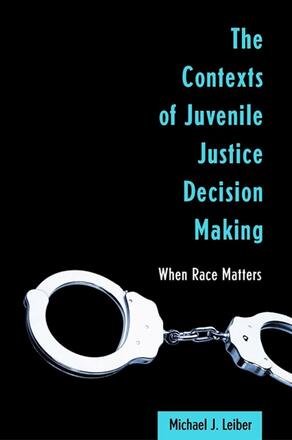
The Contexts of Juvenile Justice Decision Making
When Race Matters
Alternative formats available from:
Explores the contexts of judges' decision making in juvenile courts that incarcerate disproportionately more minorities than whites.
Description
An in-depth examination of the contextual nature of decision making and the causes of disproportionate minority confinement in four relatively homogenous juvenile courts in Iowa, this book explores the subjective social psychological processes of juvenile court officers and the factors that influence those processes. Iowa, although a state with a predominantly white population, has one of the highest minority incarceration rates for juveniles. Michael J. Leiber focuses on the relationships between adherence to correctional orientations (such as retribution and rehabilitation) and decision-makers' views concerning race, crime, family, and respect for authority with judgments and differential outcomes for youth. Quantitative and qualitative methodologies are used to determine the extent to which correctional ideologies and decision-makers' stereotyping of minorities are fueled by a wide range of contingencies, the impact of case processing and outcomes of whites, African Americans, and Native Americans, and how it varies by jurisdiction.
Michael J. Leiber is Professor of Criminology at the University of Northern Iowa.